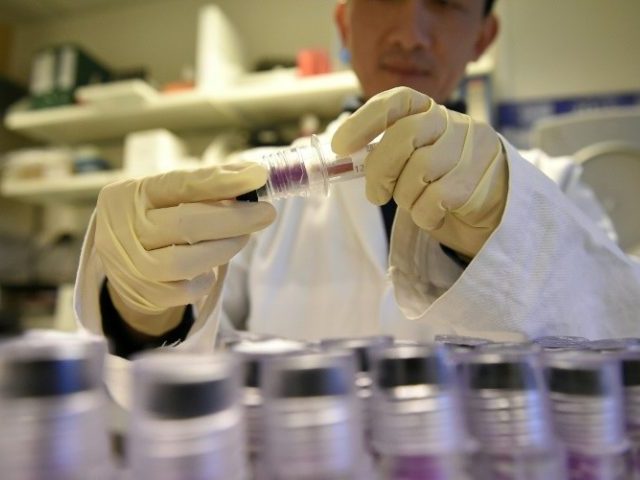According to a study published in September, “base editing” of human embryos may hold promise for the eradication of genetic disease.
Beta thalassemia is a group of bl0od disorders that reduce or destroy the body’s ability to synthesize chains of hemoglobin. It is a ruthless killer; babies who fall victim to β-thalassemia may not even survive their fifth year of life. Until very recently, even treating the disorder was impossible. Now, with the help of bleeding-edge medical technology, we can hope to cure it.
In the Protein & Cell medical journal, a group of Chinese scientists have published findings showing that base editing of the embryonic genome could eliminate this deadly genetic malady. David Liu, Harvard professor and core member of the Broad Institute, explained that “many human genetic diseases are caused by single point mutations that need to be precisely corrected, rather than disrupted, in order to treat or study the corresponding disease.”
While traditional CRISPR gene editing involves cutting the malformed DNA in order for the cell to repair the damage itself, base editing makes minute changes without completely severing the DNA strands. Liu and his research group at Harvard are the ones who developed base editing. He explains it:
Base editing … does not make a double-stranded cut in the target DNA. Instead, base editors directly perform ‘chemical surgery’ on the target DNA base to convert one base pair to a different base pair, that is, to make a point mutation.
Only about 20 percent of the tested embryos were successfully treated, but that is more than enough to prove that it is possible. Furthermore, the embryos were made in a lab, rather than occurring naturally. Finally, even in the successful subjects, not all cells took to the base change. University of Utah Professor of Biochemistry Dana Carroll said that “inefficiencies” must be corrected before the approach is practically useful.
But whether or not refinement can produce the 100 percent success rate seen in rodent subjects, this study represents hope. As with any of the numerous medical breakthroughs we now see on a daily basis, that is as good a place to start as any.
Follow Nate Church @Get2Church on Twitter for the latest news in gaming and technology, and snarky opinions on both.

COMMENTS
Please let us know if you're having issues with commenting.